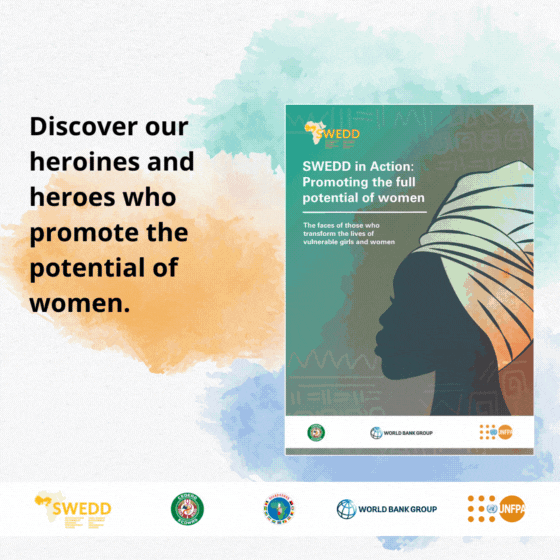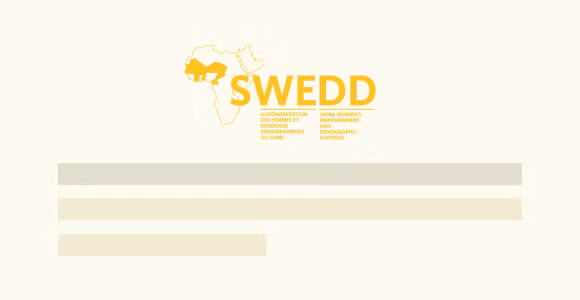

NEWS
“Becoming empowered role models for our sisters”
21 March 2024

Diane Ndarbawa is President of the association for better socioprofessional integration of girls and women in Cameroon (AMIS Cameroun), which she founded in 2020 in Maroua.
Diane, 29, is an ambassador for the SWEDD project’s Stronger Together campaign. She lives in the same town as the woman who has been a mother figure for her, Aissa Doumara Ngatansou, “she's given me a lot of advice and support”, she explains. Having met through their voluntary activities, Aissa offered Diane guidance and helped her to build on her skills.
Married off at 15, she became a mother at 18, but divorced her violent husband after her daughter was born. After high school, she decided to take a vocational qualification in management and computerized accounting, which included several work placements. Today, she provides services for companies and voluntary organizations. In particular, she is in charge of monitoring and training at the Association au Secours des Filles-Mères [Association for the Relief of Young Mothers], in Maroua. “I provide training in the use of digital technology, income-generating activities, group actions, and monitoring in rural areas.”
She has received a great deal of support, including from UN-Women, local organizations and the Cameroon Ministry of Small and Medium sized Enterprises. Diane takes part in online training courses, as well as international events such as the Generation Equality Forum, held in Mexico City and Paris in 2021 to launch a five year action plan to make irreversible progress towards gender equality. One of the most recent conferences she attended, the Global Land Forum in Jordan in May 2022, made a strong impression on her: “This wonderful experience taught me a lot about access to land for women and vulnerable people,” she says.
She is also a representative of the Action Coalition on Economic Justice and Rights, and a “focal point for girls” for the law enforcement and civil society platform in Cameroon’s Far North region. She says that some of the main barriers she faces are in “access to funding and necessary equipment; traditional and religious constraints on young Sahelian women; and access to information and communication.” Her dream would be to provide a dedicated space for young mothers in her region, “so that they could go from being victims to survivors, have access to training and self-esteem-building tools, and become role models for their sisters.”

Find out how the SWEDD project is changing lives across sub-Saharan Africa in the book SWEDD in Action: Promoting Women's Full Potential here
